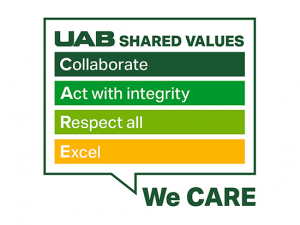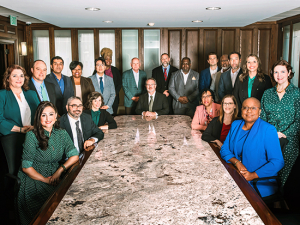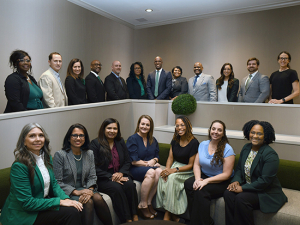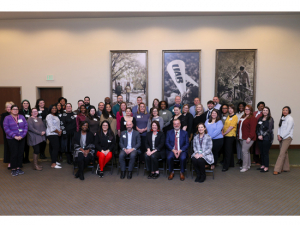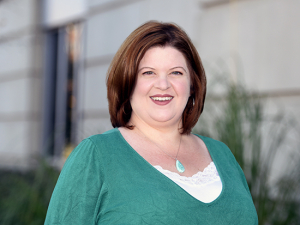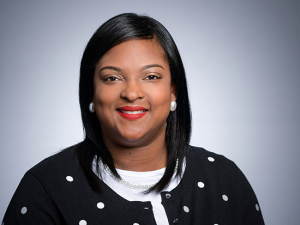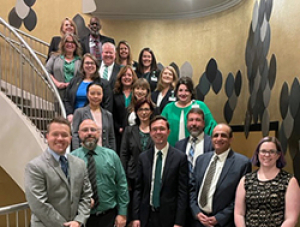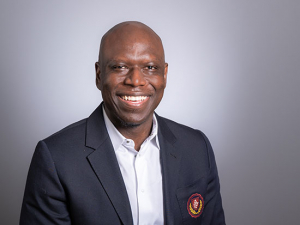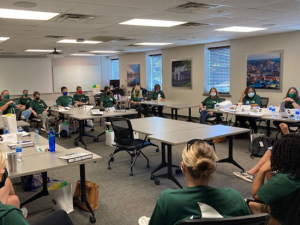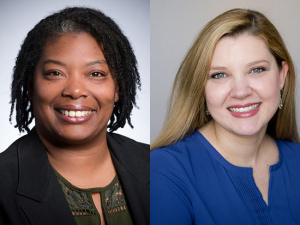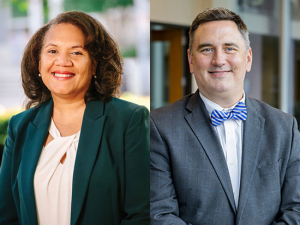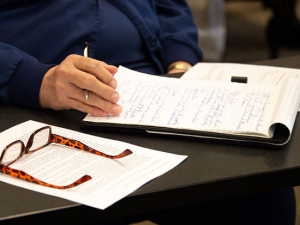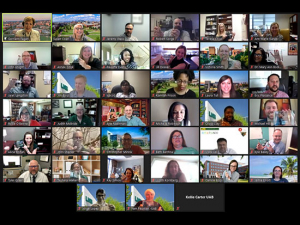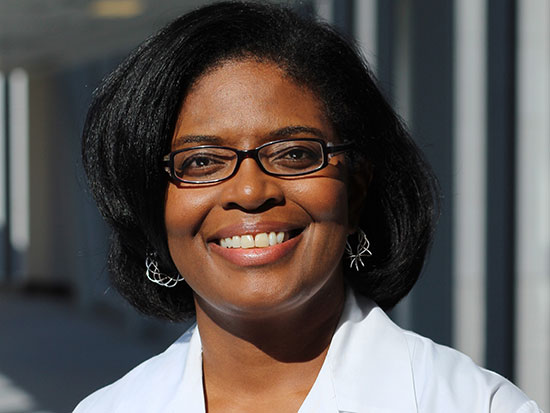 Tina Simpson, M.D.Tina Simpson, M.D., specializes in adolescent medicine, which means she spends her days with patients who are trying to find their way in a world that can seem full of promise at one moment and completely overwhelming the next. Those are feelings often shared by young faculty at leading academic medical centers such as UAB, where the possibilities are abundant but the road to take isn't always clear.
Tina Simpson, M.D.Tina Simpson, M.D., specializes in adolescent medicine, which means she spends her days with patients who are trying to find their way in a world that can seem full of promise at one moment and completely overwhelming the next. Those are feelings often shared by young faculty at leading academic medical centers such as UAB, where the possibilities are abundant but the road to take isn't always clear.
Simpson, professor and vice chair for Faculty Development in the Department of Pediatrics, directs the department’s Office of Faculty Development. She has long made it her mission to help students and younger faculty find their paths in medicine as a way of repaying those who have invested in her. In 2017, she received the American Medical Women's Association's Exceptional Mentor Award, which celebrates physicians who have made an impact on the lives of medical students and physicians in training and have actively worked to help guide students in their career paths. “Over the years, I have had such influential mentors and take great pleasure in being able to provide similar encouragement and support to students and trainees,” Simpson said at the time.
Impact on success and fulfillment
Simpson launched the Office of Faculty Development in pediatrics in 2015. "Our chair, Mitch Cohen, came from Cincinnati Children's Hospital, where they had a faculty development office, and he saw great value in it," she said. At the time, there was a faculty development office in UAB’s Department of Emergency Medicine. Today, several departments and divisions in the School of Medicine have added similar offices, Simpson said. "I think that more of the chairs are seeing the importance of that investment in faculty development," she said. "It helps foster overall career success and fulfillment, which has an impact on both retention and recruitment of new faculty."
The Faculty Development office organizes an annual onboarding process for new faculty, during which they are introduced to the idea of creating their own individual development plans, participate in a professional development opportunity on developing and working in effective teams and learn more about the promotion and tenure process and campus resources such as the Center for Teaching and Learning. New faculty also learn about the services offered in Pediatrics. "We have a chief wellness officer in the department, and they learn about the programming she is doing as well," Simpson said.
Navigating relationships and conflict
"New faculty are often interested in learning more about managing relationships and navigating conflict," Simpson said. "Those seem to be the things that people struggle with as part of their leadership development."
Another perennial area of interest is clarity around what is needed to be successful in an academic position. Even for those who have already held faculty positions at other institutions, there is a desire to know more about UAB's unique culture. "Each institution has its own nuances, and even within an institution the expectations evolve."
Coaching circles
One popular development opportunity are the coaching circles that Simpson organizes. "These are junior- to mid-level individuals who are beginning to acquire more leadership responsibilities," she said. "Medical school teaches you how to diagnose issues and work with patients, but not necessarily how to lead teams." That was her experience, Simpson said. "As I advanced in my career and began to have more leadership responsibilities, I realized that I needed and was expected to do tasks for which I had no real training," she said. "The desire to do well as an emerging leader led me to seek coaching. I gained so much from my coaching experience — a better understanding of myself and enhanced communication skills. When I became the director of faculty development, introducing coaching to my colleagues was a priority for me."
“The coaching circle was extremely helpful in providing me with a new perspective in how to be effective at giving feedback and mentoring others,” said Samantha Hill, M.D., assistant professor in the Division of Adolescent Medicine. “I also found practicing these skills with other members of my coaching circle group who have varying experiences and levels of experience valuable.”
“I enjoyed the longitudinal experience of discussing leadership and career development challenges with my colleagues,” said Michael Seifert, M.D., associate professor in the Division of Pediatric Nephrology. “This is a great program for faculty looking for fresh perspectives on career development in a collegial and supportive environment.”
The coaching circles are an application-based program. Typically at least eight faculty, about 5% of the department's total faculty, participate in each cohort. Alumni of the coaching circles have started a leadership development journal club as well. "It's a way to do ongoing leadership development for the alumni of that program," Simpson said.
Developing as educators
The Office of Faculty Development organizes a number of recurring series that repeat on a roughly two-year cycle. The Fourth Friday Lunch and Learn is focused on topics around medical education. For instance, "we partnered with the Center for Teaching and Learning to improve the clinical educator skills of our faculty," Simpson said.
The department's Faculty Scholars Program has completed three cohorts with 10-12 faculty members in each cohort. Participating faculty "learn some of the fundamentals of being a good educator, adult learning theory and culturally responsive care," Simpson said. “They then develop an educational curriculum for trainees in their units on topics related to being more culturally responsive in our health care delivery."
“As a mid-level faculty member new to UAB, this opportunity was invaluable,” said Morissa Ladinsky, M.D., associate professor in the Division of Academic General Pediatrics. “I loved how my mind was pushed, challenged and broadened. I am a far better pediatrician and physician-educator for it.”
Developing relationships
"We also have several people in our department who are credentialed in different professional development criteria, including Crucial Conversations and change-style indicators, who teach during Fourth Fridays,” Simpson said. She is a trained emotional intelligence facilitator. Emotional intelligence training builds self-awareness and self-management skills, "and those are the two fundamental steps in being able to be effective in relationship management," Simpson said. "There is a great deal of research to support that emotional intelligence is a critical skill."
Developing as people
Diversity and inclusion activities in the department are directed by the Office of Faculty Development as well. "We recently started a social justice book club," which is held over Zoom, Simpson said. The group has been covering a book a month, including “Blind Spot,” “Biased” and “How to Be An Anti-Racist.”
Developing as leaders
Simpson’s office also organizes a quarterly leadership development series. "This year we partnered with the Collat School of Business for courses on financial planning and on adopting an Agile mindset," Simpson said. Agile is a project-management methodology that has been popularized by software-development teams and has developed a wide following in other businesses.
Universitywide resources
Simpson said she is able to draw on a number of resources all across campus, including the professional development offerings from Learning and Development, the Collat School of Business and the School of Medicine's Leadership Development team, led by David Rogers, M.D. "There are so many campus resources to support our efforts,” Simpson said. “I am very appreciative."
